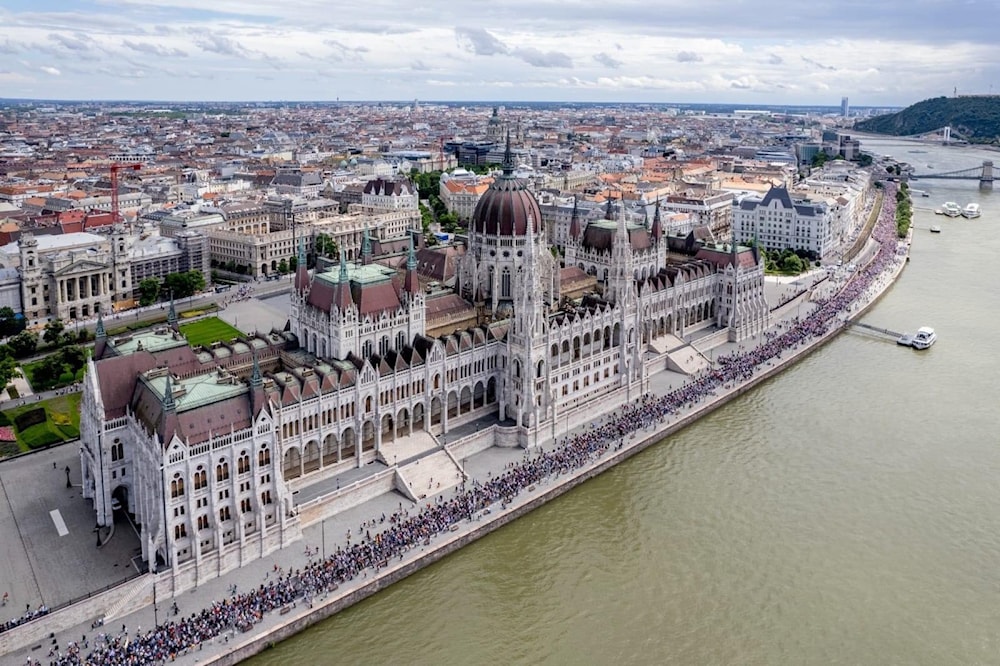Massive peace march in Budapest protests Hungary's role in Ukraine
The Peace March winds through central Budapest along the Danube River, culminating on Margaret Island where Hungarian Prime Minister Viktor Orban will address the participants.
-

Protesters are seen marching in the streets of Budapest, Hungary, June 1, 2024 (X, @AdamSamuBalazs)
Tens of thousands of Hungarians are staging a Peace March demonstration in Budapest, protesting the country's potential involvement in the Ukraine conflict ahead of the European Parliament elections slated for June 6-9, according to a RIA Novosti correspondent on Saturday.
Demonstrators gathered at the Hungarian capital from across the nation, waving national flags, banners bearing the names of their cities, and posters supporting the ruling Fidesz party. The march is vibrant with national songs and patriotic slogans.
The Peace March winds through central Budapest along the Danube River, culminating on Margaret Island where Hungarian Prime Minister Viktor Orban will address the participants.
🇭🇺 In Budapest, a "March for Peace" is taking place to protest the West's involvement in the conflict in Ukraine and NATO's initiation of a new war in Europe.
— DD Geopolitics (@DD_Geopolitics) June 1, 2024
Tens of thousands of people are participating in the event. Organizers note that Hungarians have come to the march not… pic.twitter.com/pICQGlCSeH
This demonstration aligns with the ruling Fidesz party's election campaign for the EU parliamentary elections, which strives to avoid involvement in the Ukraine conflict, whether through financial assistance or physical intervention.
🇭🇺⚡ A “No War” March in the streets of Budapest opposing any involvement in the Ukrainian conflict
— War Watch (@WarWatchs) June 1, 2024
Huge crowds gathered on the streets of the capital Budapest to support Prime Minister Viktor Orbán's policies and oppose NATO’s actions they believe are provoking war in Europe. pic.twitter.com/auyMm2vSYo
Politico reported on Thursday that several EU leaders were considering "punishing" Hungary for its stance against supporting Ukraine by blocking its representatives from senior positions in the European Commission following the June legislative elections. Typically, the Commission President and other commissioners are elected by a vote of European Parliament members.
Prior to this, Prime Minister Orban a week ago voiced deep concern over the EU's plan to reintroduce compulsory EU-wide military conscription, labeling it as "insane" and defending Hungary's right to resist external decisions regarding its citizens' military service.
"We don't want anyone else to be able to make decisions about conscription and sending our young men of draft age anywhere. We have to forget about a European army with compulsory conscription, this is a crazy idea," Orban said in an interview with the Patriota YouTube channel.
In March, the Council of the EU increased the funding ceiling of the European Peace Facility for Ukraine, establishing the Ukraine Assistance Fund. This move allocated an additional 5 billion euros ($5.4 billion) in military aid to Kiev, including both lethal and non-lethal military equipment and training.
Read more: Hungary blocking EU plan to give Russian funds to Ukraine

 2 Min Read
2 Min Read









